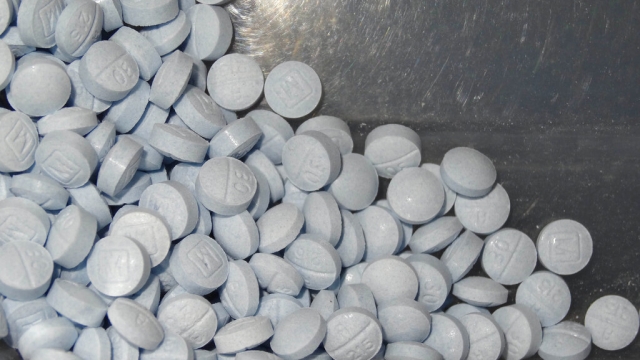The White House has announced new steps to crack down on illegal drug trafficking, specifically fentanyl.
The announcement comes as fentanyl seizures along the southern border continue to rise. Last year, more than 15,000 pounds of the synthetic drug were seized at the border.
The Biden administration hopes to cripple the dangerous drug's supply chain through a series of new actions.
"We're going after the criminal facilitators and enablers and the targeting of key vulnerabilities in the illicit fentanyl supply chain to maximize our impact across the drug producer and trafficker spectrum of capabilities," Dr. Rahul Gupta, Director of National Drug Control Policy told, Scripps News.
They are focused on key areas, Gupta explained, including cutting off drug traffickers from U.S. financial markets via sanctions, targeting the supply chain of the drug — such as pill presses, dye molds, and machinery — as well as creating a global coalition to tackle the issue worldwide.
In 2021, synthetic opioids like fentanyl led to more than 70,000 American deaths.
The drug is 50 times stronger than heroin and 100 times more potent than morphine, meaning a fingernail amount can be deadly.
In a statement, the administration says they are leading a "coordinated global effort with international partners" to disrupt the drug trade.
Those partners, Gupta said, include the European Union, Australia, India, as well as New Zealand and Singapore; they also continue to partner with Canada and Mexico.
According to the DEA, the Sinaloa and Jalisco (CJNG) Cartels are "primarily responsible for the fentanyl that is killing Americans today" and is "being mass-produced at secret factories in Mexico with chemicals sourced largely from China."
As a nation, China is very strict when it comes to illegal drugs, but a lot of those come over into the U.S.
"We're calling on China to come to the global stage to become a global leader and act as a global leader by making sure that they're tamping down on the illicit shipment, as well as production of these precursor chemicals," Gupta said. "We've asked them (China) very clearly the things that they can do. For instance, create a 'know your customer' protocols for the chemicals that are being shipped, have proper labeling that are agreed upon by the world community shipping standards, and then know what chemicals are going out and why."
When asked if they have responded to those requests, Gupta said they are continuing to "await that response."
In Washington, GOP lawmakers in both the House and Senate are calling for military action to take down drug cartels.
"Give the military the authority to go after these organizations wherever they exist. Not to invade Mexico, not to shoot Mexican airplanes down, but to destroy drug labs that are poisoning Americans," Sen. Lindsey Graham said during a press conference last month.
The White House and the Department of Defense have resisted such actions, arguing the issue is best handled by law enforcement and in cooperation with Mexico's government.
"We ask the Mexican government to make sure that they're doing everything in their power to go after the illicit production, as well as the supply chain of fentanyl. Because at the end of the day, look, we must work together," Gupta said.
Lawmakers on both sides of the aisle have also called for Mexican cartels to be labeled as terrorist organizations, but the White House says that wouldn't give the U.S. any added ability to go after those cartels than they already have.



